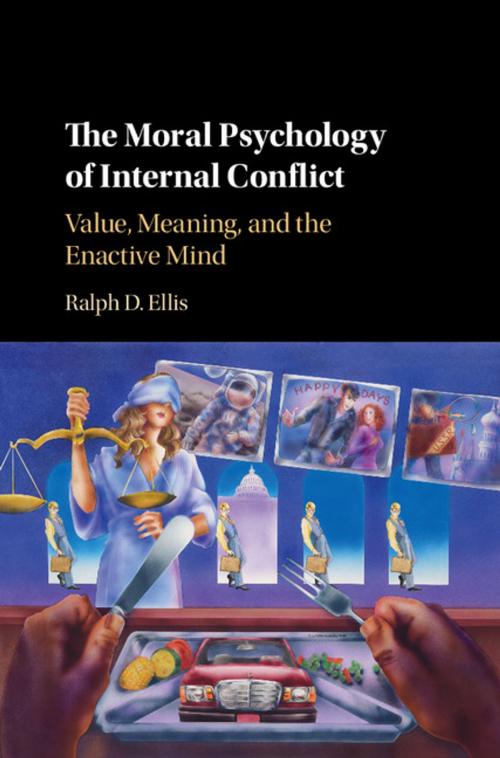The Moral Psychology of Internal Conflict
Value, Meaning, and the Enactive Mind
Nonfiction, Health & Well Being, Psychology, Cognitive Psychology, Religion & Spirituality, Philosophy| Author: | Ralph D. Ellis | ISBN: | 9781108117609 |
| Publisher: | Cambridge University Press | Publication: | January 11, 2018 |
| Imprint: | Cambridge University Press | Language: | English |
| Author: | Ralph D. Ellis |
| ISBN: | 9781108117609 |
| Publisher: | Cambridge University Press |
| Publication: | January 11, 2018 |
| Imprint: | Cambridge University Press |
| Language: | English |
Pushing back against the potential trivialization of moral psychology that would reduce it to emotional preferences, this book takes an enactivist, self-organizational, and hermeneutic approach to internal conflict between a basic exploratory drive motivating the search for actual truth, and opposing incentives to confabulate in the interest of conformity, authoritarianism, and cognitive dissonance, which often can lead to harmful worldviews. The result is a new possibility that ethical beliefs can have truth value and are not merely a result of ephemeral altruistic or cooperative feelings. It will interest moral and political psychologists, philosophers, social scientists, and all who are concerned with inner emotional conflicts driving ethical thinking beyond mere emotivism, and toward moral realism, albeit a fallibilist one requiring continual rethinking and self-reflection. It combines 'basic emotion' theories (e.g. Panksepp) with hermeneutic depth psychology. The result is a realist approach to moral thinking emphasizing coherence rather than foundationalist theory of knowledge.
Pushing back against the potential trivialization of moral psychology that would reduce it to emotional preferences, this book takes an enactivist, self-organizational, and hermeneutic approach to internal conflict between a basic exploratory drive motivating the search for actual truth, and opposing incentives to confabulate in the interest of conformity, authoritarianism, and cognitive dissonance, which often can lead to harmful worldviews. The result is a new possibility that ethical beliefs can have truth value and are not merely a result of ephemeral altruistic or cooperative feelings. It will interest moral and political psychologists, philosophers, social scientists, and all who are concerned with inner emotional conflicts driving ethical thinking beyond mere emotivism, and toward moral realism, albeit a fallibilist one requiring continual rethinking and self-reflection. It combines 'basic emotion' theories (e.g. Panksepp) with hermeneutic depth psychology. The result is a realist approach to moral thinking emphasizing coherence rather than foundationalist theory of knowledge.















